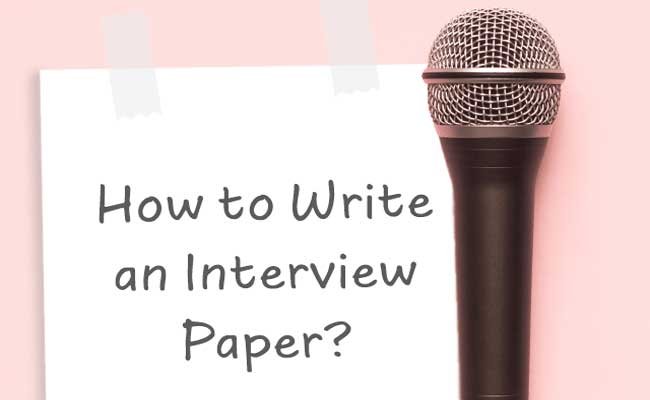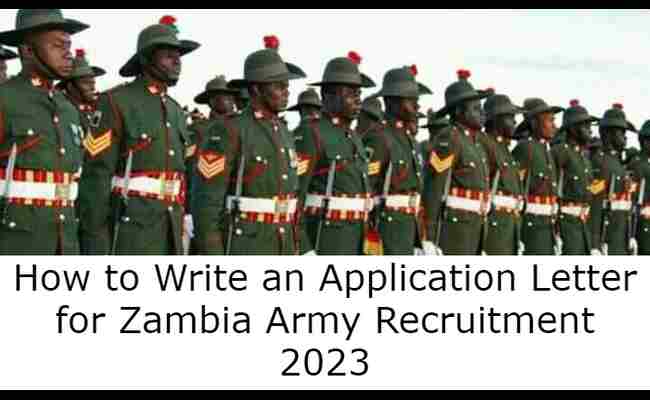
Why Information Technology Is Good For The Education Process
December 2, 2021
Citizenship By Investment: Why It Is Needed In 2024
December 2, 2021If professors want to check how students can give various perspectives on a certain topic, an interview essay is the best option. To get a high score, a student should produce an outstanding paper on the basis of the conducted research and interviewing done to collect data.
The importance of interview paper writing cannot be denied. In different types of essays, writing is based on scholarly reading materials and sources. Interview papers use the information collected from the interviews with the people with authority in a certain area.
So, a book is not the only source of data, people can also give plenty of information. It is possible to get a personal opinion on a certain subject through an interview if a person is an expert in a specific field. You get an issue for analysis; so, what you need now is an expert view on it.
Your text should consist of an introduction, a body with a transcript of the interview, and a conclusion. There is no universal guideline on a typical length of such an essay. The following papers can be of different scope; the topics can vary. In most cases, an interview paper may comprise from 2,000 to 5,000 words.
Interview Papers: Classification
There are various types of interviews as they have their particular structure, goals, and objective. From a traditional viewpoint, an interview is a dialogue in the style of asking questions and giving answers. Also, there are such types as:
Narrative Ones.
It is a challenging process that implies turning the transcript into a story. This type requires special skills and attention to details. Conducting such an interview, either in-person or online, you should ensure that you have a notebook and you write down all the data, no matter the form. It can be in the form of the scattered statements or bullet points.
You ask questions in the framework of a narrative interview and encourage the participants to summarize their experience and tell the story of a certain event or attitude to a particular phenomenon.
The key objective of this work is to ask questions and collect information about particular experience of a person. The researcher prepares questions in a special manner to get a summary of all relevant events in the form of a narrative. It is necessary that all the facts should be connected with a common idea, interpretation, or theme.
Personal Ones.
Recruiters organize personal interviews to give proper evaluation of new applicants for employment. It is a meeting which is beneficial both for the employer and the candidate. In the course of this two-way process, the former tries to understand if the latter is suitable for this particular company and competent enough to work at high level of professionalism.
The candidates try their best to demonstrate that there are no other suitable applicants for this position as they will be perfect assets for the team and organization. If the contact in the course of the interview takes place face-to-face, the researcher can get access to bother verbal and non-verbal information. Thus, there is no appropriate way to evaluate the abilities of a potential employee than to conduct a personal meeting with him or her.
Narrative interviews tend to be similar to telling stories, while personal interviews take the dialogue format of questions and answers.
Skills Needed For Interview Writing
Analytical Skills
Even people with poor interview paper writing skills understand that there is a difference between working on an interview and an essay. What is the main aim of interview essays? They have to collect information from the experts or people with experience in a particular area.
What is the purpose of an essay? Mostly, it has to inform the readers. The author of an essay studies a particular issue and forms a certain idea to draw conclusions and share them with others.
While working on an interview, you should apply analytical skills to guess which answers can be given and make predictions. Also, you should interpret the desires of the interviewer and give thorough answers. It is important to deem analytically to give good examples and explain how analysis is essential in a particular job.
Listening Skills
Interviews cannot be effective without excellent listening skills. They add to the experience of conducting interviews and make the outputs outstanding. While other people are speaking, you have to listen attentively. It is an easy guideline, but it is extremely challenging to follow it.
Listening to other people and reflecting over the next question is what many people do. It can be a time-saving technique, but it can deteriorate the results considerably. It can even prevent you from remembering what you have just heard. Try to focus on what the candidate is telling about.
Be attentive and confirm that you have heard the words and you can respond to them, restating what has been told. You can do that either aloud or silently in your mind. Also, you can maintain eye contact, nod, smile, or lean towards the speaker, demonstrating various non-verbal clues.
Planning Skills or Organization Skills
Interviews require first-rate organization skills, which play a crucial role in the process. Prioritizing is easier for an employee with good organization skills, who can show higher productivity and efficiency in work. The interview answers should focus on the abilities to set essential priorities and ensure time management.
You may believe that writing outlines is a sign of too much scrupulousness. Instead, an outline s a list of issues is a helpful technique. It demonstrates that you are ready to take into account all the factors. With proper explanations, it looks as a confirmation of fair attitude and confidence. It is convenient to have a preliminary list of questions with the anticipated answers to make the interview process much smoother.
Communication Skills
Strong verbal skills are the priority characteristics that the employers are searching for in their employees. The workplace is diverse and requires excellent communication skills and ability to get in contact with different people. You should consider that people may be of different age, background, ethnicity, religion, or race. One of the recent requirements is the skills of communicating remotely.
If you apply for a job, the hiring managers try to get to know as much as possible about you. They may gather details from the Facebook posts, Twitter feed, resume, and other sources. It is the interview which lets the HR managers understand what kind of person you are. An interview makes it possible to create an image of a complete personality out of the fragments.
Body Language
The applicants always study the guidelines to know how they should speak to stand out of others in different settings. One of the main things is to keep good posture and maintain eye contact with the interviewer. Slouching makes a negative impression.
So, you have to sit up straight. Your gestures, facial expressions, and posture give a lot of signals. They communicate your emotions much clearer than your words. You also need the skill of interpreting the body language as it can help you to understand what is happening.
Politeness
You have to respect other people and be polite. These are the things everyone has known since childhood. Still, they are extremely important as they boost the self-esteem, build the required atmosphere, and show that you are good at communication.
Start with the greeting and be polite with everyone you meet. Firm handshakes smiles, and eye contact may have a strong effect. Your chances to succeed get much higher if you are sociable and tolerant.
Conclusion
The importance of interview paper writing is undoubted, and you can learn this skill through extensive practice. Is it worth the efforts? Yes! It is helpful in your professional life and can motivate you a lot. Interview skills are also crucial in diverse situations. It is valuable if you can give answers to tough questions and be cool even if you are under pressure. A combination of hard skills (qualifications) and soft skills (communication and interpersonal relations) can make you successful.




